- Share via
HONG KONG — The pastor wept, holding a candle amid tens of thousands of strangers, as he heard his friend’s name spoken for the first time in 20 years.
It was 2009, the pastor’s second year in Hong Kong and first time attending a vigil to commemorate the Tiananmen Square massacre. He had been too afraid to go in 2008 and was still worried about being seen and reported to mainland authorities.
Then the announcer read his friend’s name from a list of Tiananmen victims: “Lu Chunlin.”
All those years, the pastor — who asked that his name not be used for protection from authorities — had never uttered those syllables. He and Lu protested government corruption together in 1989 in Beijing, where Lu was shot in the back when Chinese soldiers put down a growing democracy movement.
Hong Kong authorities have banned the annual commemoration of the June 4, 1989, massacre this year, citing public health concerns because of the coronavirus. For three decades, the vigil has drawn tens of thousands of mourners honoring the memory of slain protesters, even as such observances are forbidden in mainland China.
Now, as Beijing exerts control over Hong Kong to violently counter mass protests that have flared for nearly a year, many fear the Tiananmen vigil will be permanently lost, another sign of China’s tightening grip on the territory’s freedoms and defiance.
Yet those who commemorate Tiananmen are determined to remember — and resist. But keeping a name alive can be dangerous.
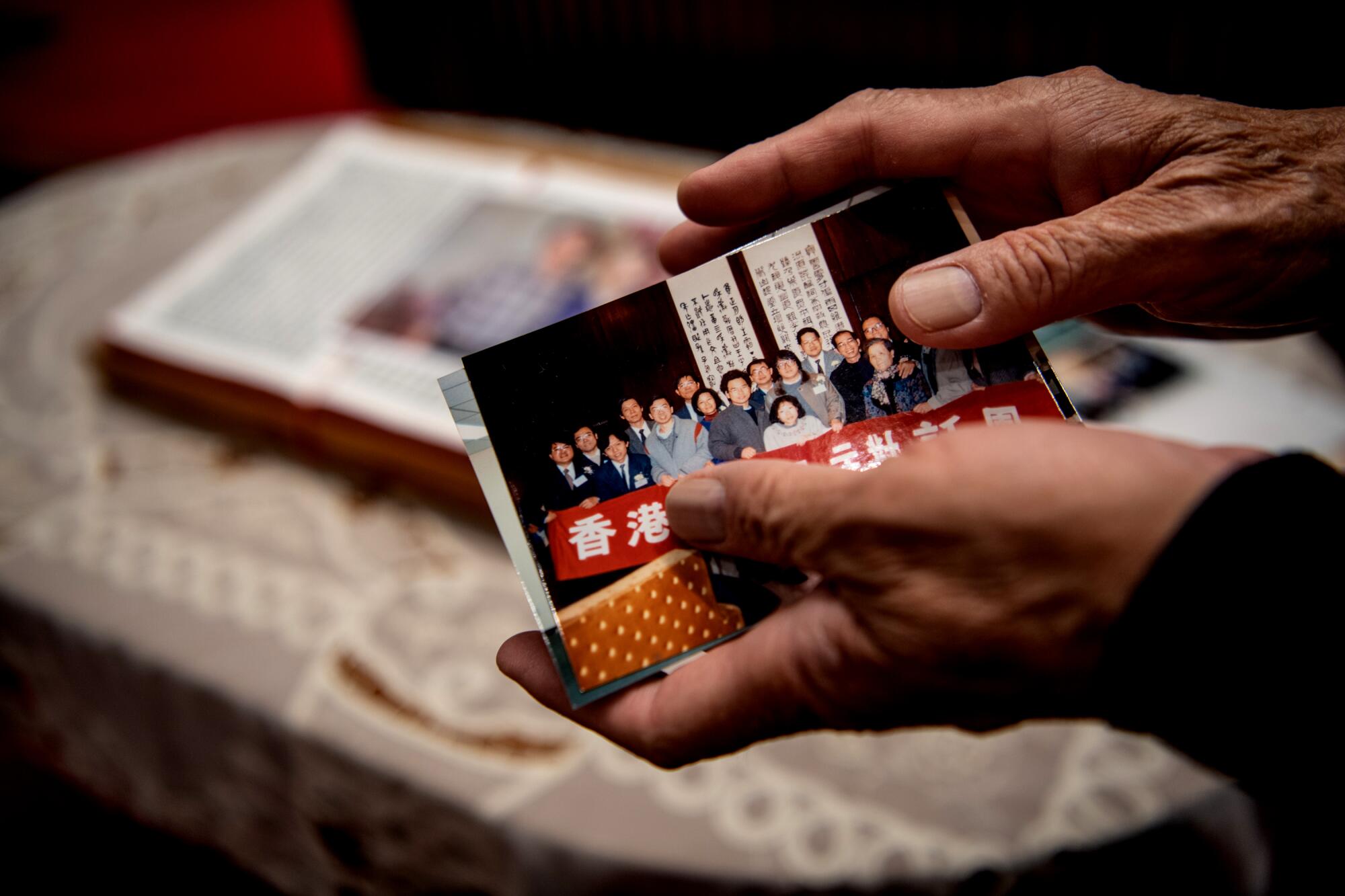
After his death, Lu’s name was erased from school records, his family silenced, and anyone who spoke about him or the others who’d been killed was punished by authorities.
“It’s like this person never even existed on this Earth,” the pastor said. He hadn’t spoken Lu’s name either. He felt powerless, and hated himself for it.
But here, in Hong Kong, Lu was known. They spoke his name out loud.
“I said to my classmate in my heart: See how many people remember you?” he said. “When he was remembered, I was freed.”
The pastor has come to the vigil every year since.
Now 55, the pastor grew up as part of a generation that believed it was the hope of the nation.
“Since we were young, we’d been taught that we were so lucky,” he said. “The Cultural Revolution was over. We had books to read. The adults told us: The republic’s future, modernization, it was all up to us.”
Beijing’s universities hummed with ideals. China’s economic reforms had come with inflation, inequality and official corruption that young students were determined to combat. They formed alliances with workers and took to the streets, demanding accountability and change.
The Communist Party responded with military force, including against a protester defiantly staring down a tank in an image that startled the world. An estimated 1,000 protesters were killed in Beijing, and, the pastor said, a generation of reformists lost its faith.
“We thought we were the future of this country. But to the government, we were a generation that couldn’t be trusted. So we gave up on one another,” he said.
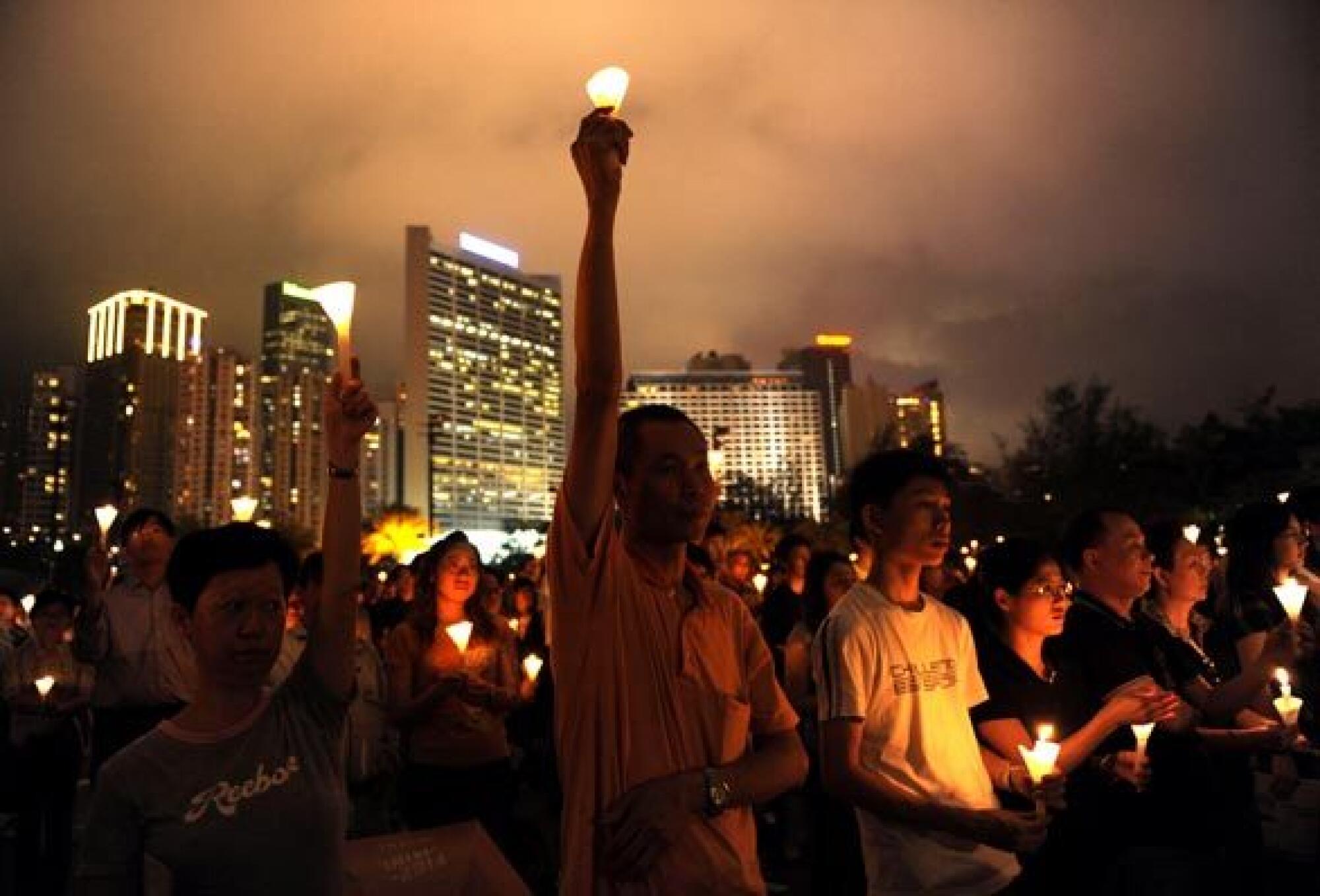
It took him 10 years to find a new sense of direction through Christianity. He became the pastor of an underground church, moved by a theology of human dignity — people had a right to resist.
“You feel: I’m equal to Xi, we are all humans. I will not treat you as a god,” he said, referring to Chinese President Xi Jinping, who has not backed down despite international criticism in recent weeks for moving to quell Hong Kong’s pro-democracy protesters. “You see that God’s word is higher than human command. Then you are able to say ‘No’.… You are no longer a slave.”
That same emphasis on dignity motivates the Rev. Chu Yiu-ming, 76, a pastor and longtime pro-democracy activist in Hong Kong.
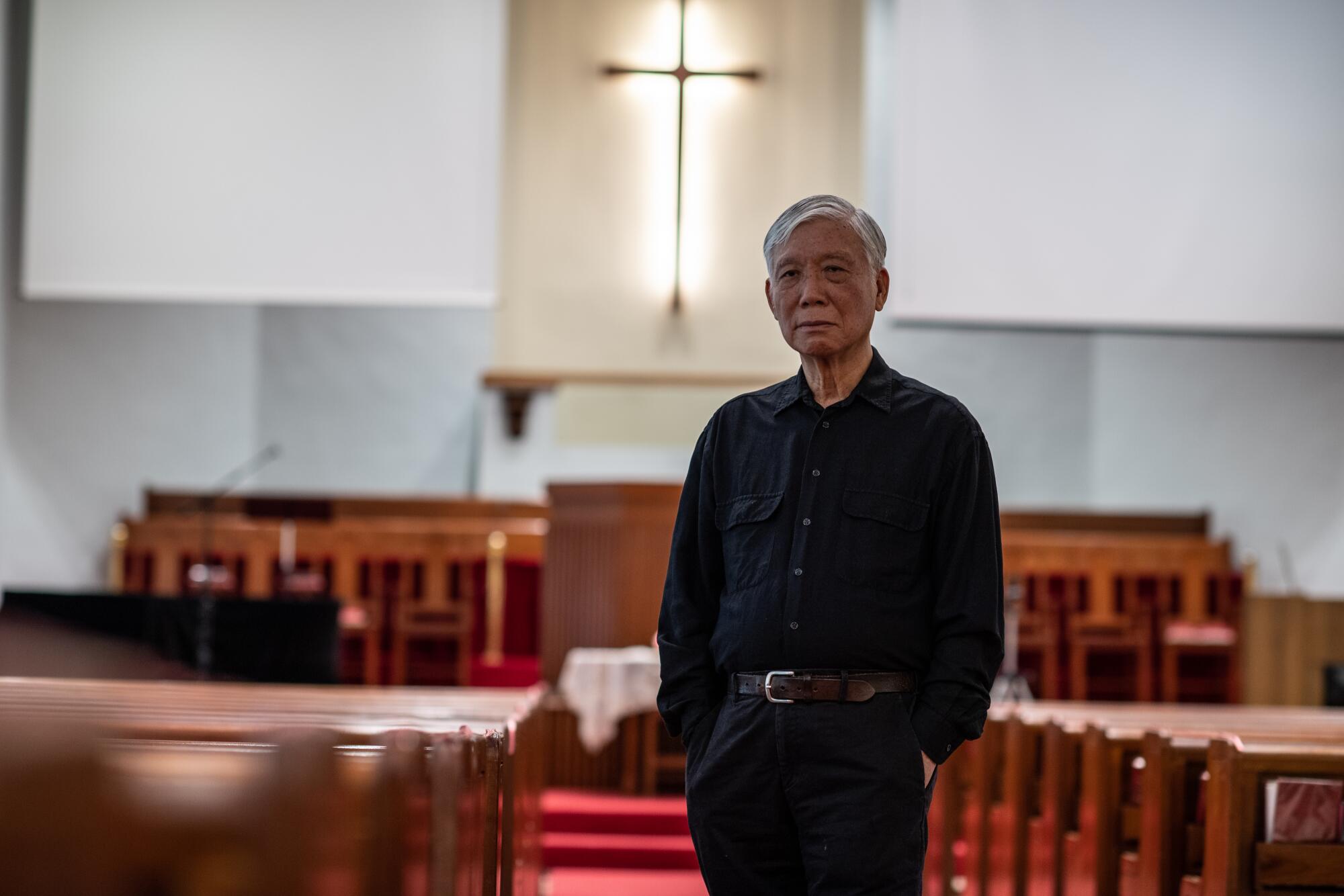
In the 1970s and ’80s, Chu worked in Chai Wan, then a cramped neighborhood where new immigrants and refugees from mainland China lived in wooden shacks and struggled to get medical care for their factory work injuries. Chu’s advocacy brought him in touch with activists.
He went to Beijing several times in the 1980s as part of a Hong Kong delegation discussing the possibility of a democratic future with central authorities. British rule over the colony was scheduled to end in 1997, and they believed that governance should be given “to the people,” Chu said.
He joined a movement for direct legislative elections in Hong Kong as early as 1988. There was genuine hope, he said — and then the Tiananmen Square massacre happened.
“We were in deep pain. We saw the people covered with blood, the students stained with bright blood, pulled on wooden carts. Our whole family was weeping,” Chu said. “I saw this and I prayed: God, what can I do? Here in Hong Kong, what can we do?”
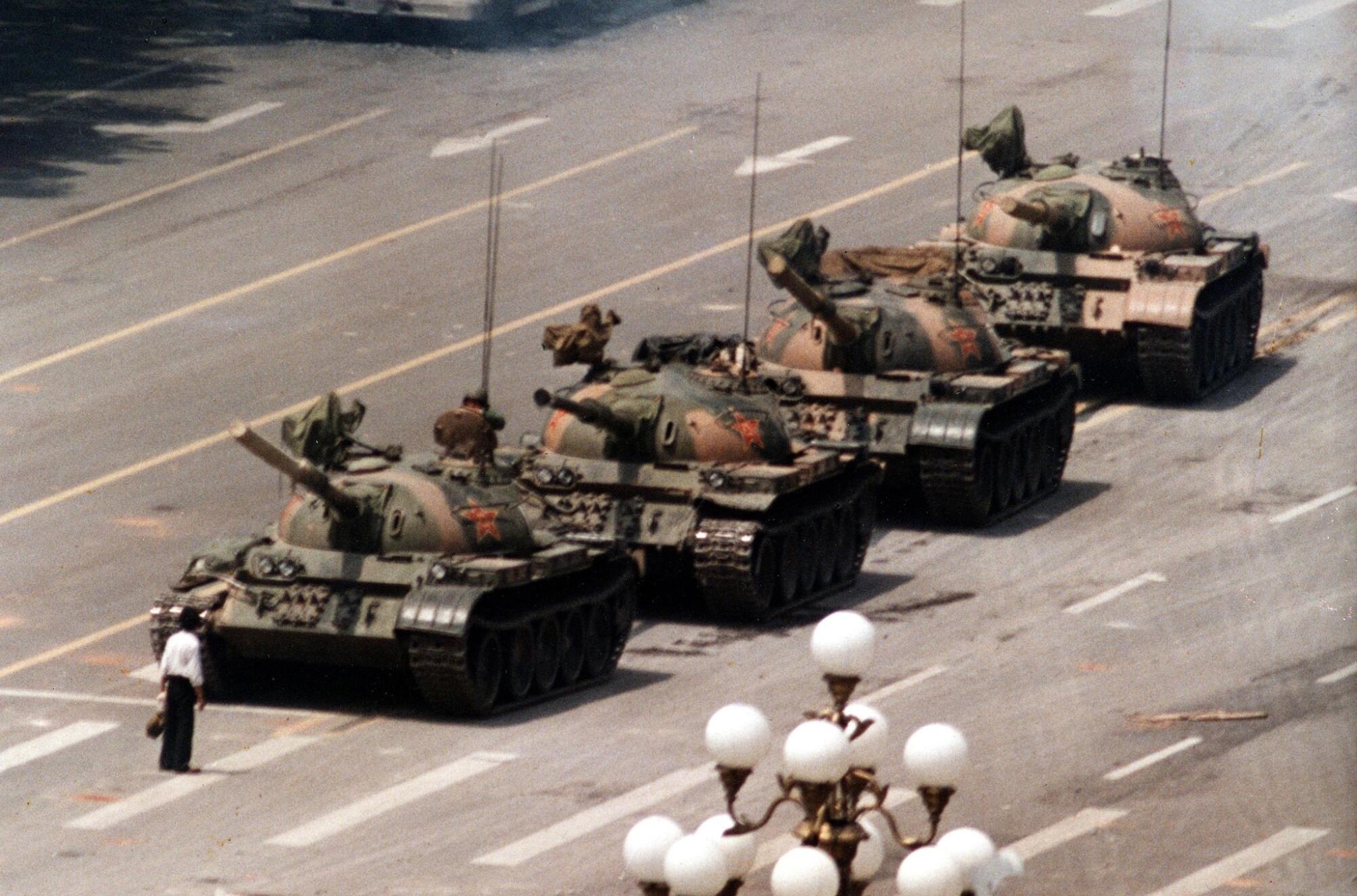
The next day, June 5, 1989, an estimated 1 million people marched in mourning in Hong Kong. A few weeks later, Chu became involved with Operation Yellowbird, an underground railroad that smuggled student leaders and dissidents from the Tiananmen protests into Hong Kong.
Chu’s role was to help escapees and work with foreign consulates and overseas communities, including those in France, the United Kingdom and Los Angeles, to accept and assist them.
“I didn’t think about whether it’d be dangerous,” Chu said. “It’s saving lives. That’s a kid drowning in a pool. You must reach out and save him.”
Last year, Chu was sentenced to 16 months in prison for his involvement in the 2014 Occupy Central With Love and Peace movement, a nonviolent protest for direct elections that evolved into the pro-democracy Umbrella Movement. His sentence was suspended for two years.
Two months after his trial, mass protests gripped the city yet again, this time against a bill to allow extradition of Hong Kong residents to mainland China. The protests have since swelled into a movement against police brutality and Beijing’s deepening influence. More than 9,000 people have been arrested.
Many of the protesters in today’s Hong Kong were born after 1989. But for them, the annual vigil to mark the Tiananmen Square massacre has been a place of political awakening, Chu said.
“Some people say, it’s just candles, what’s the point? But what the Communist Party fears most is what those candles represent: the truth,” he said. “To remember is to resist.”
But democratic change in Hong Kong — its autonomy from the mainland ends in 2047 — seems more distant than ever.
“I’ve experienced two generations, the June 4th generation and, now, another generation of brutality toward protesters,” Chu said. “Our young people are very brave. But I am filled with sorrow, because they have sacrificed too much.”
The pastor said he has the same fears. Lately, Hong Kong churches have sought his advice on how to split into small groups and survive underground, as nonstate churches are forced to do in the mainland.
“It feels like: Wherever I run, here you come again. I can’t escape,” said the pastor. Last year, he saw a picture of young protesters trapped in a subway station, being shot in the back with rubber bullets. Lu’s image had flashed in his mind.
“If those were real bullets, my classmate’s destiny would repeat,” he said. “It feels like we are returning to June 4, with that same shock and grief from the heart.”
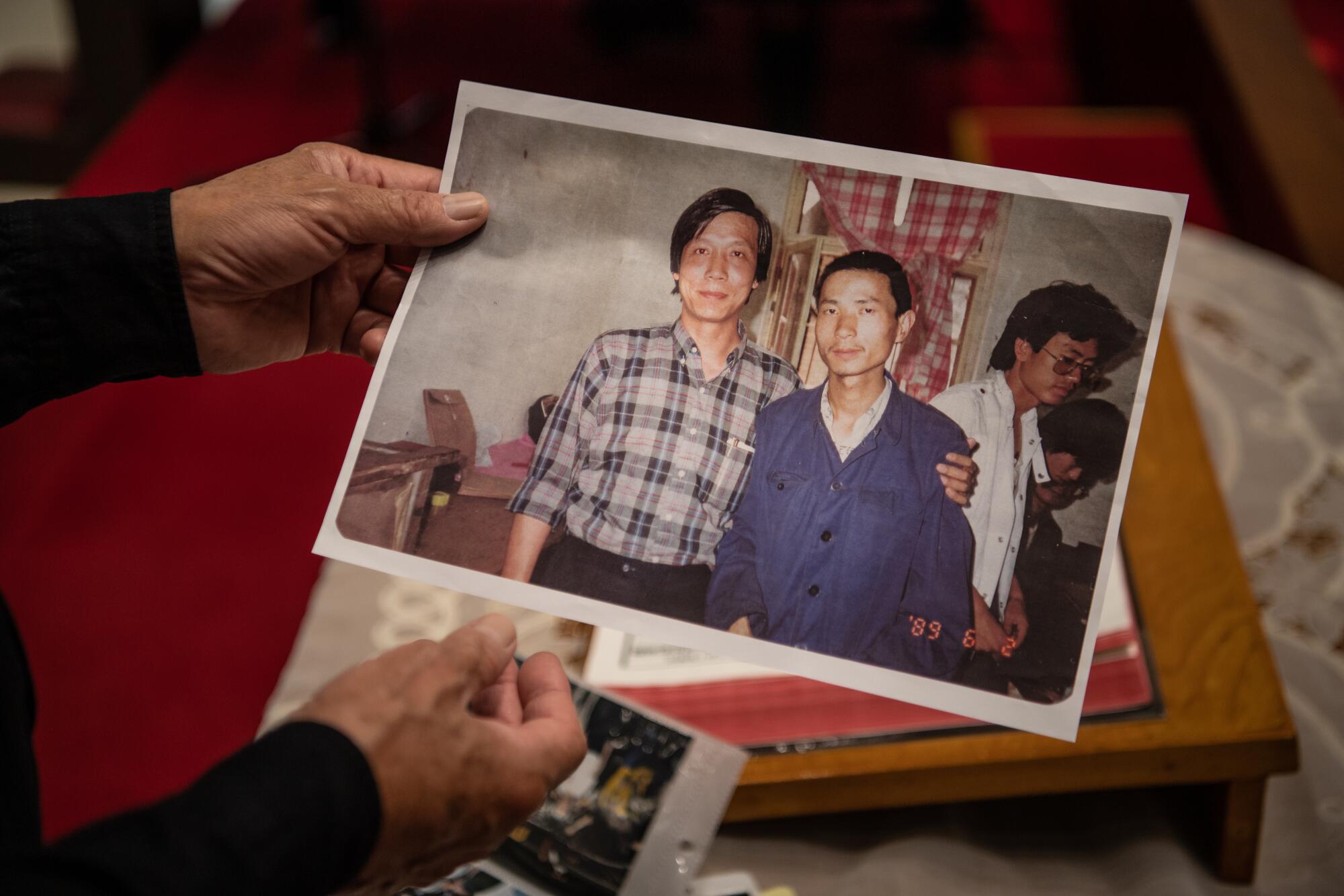
To mark the anniversary this year, the two pastors said they would light candles in groups — eight is the limit, according to Hong Kong’s social distancing rules. But authorities’ attempts to stop the vigils and protests by force would backfire, Chu said.
“You cannot destroy a conscience through violence. You cannot imprison a conscience away,” he said. “As long as there is unjust action and unjust reality, it’s like you’re burying explosives in the ground. Those bombs will explode one day.”
“Without justice, there is no peace,” Chu said.
More to Read
Sign up for Essential California
The most important California stories and recommendations in your inbox every morning.
You may occasionally receive promotional content from the Los Angeles Times.











